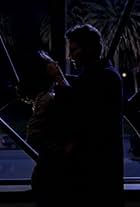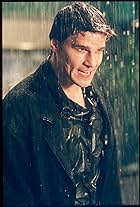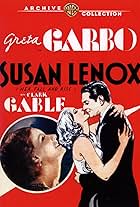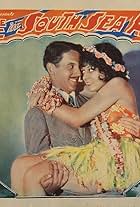AlsExGal
Joined Apr 2007
Welcome to the new profile
We're still working on updating some profile features. To see the badges, ratings breakdowns, and polls for this profile, please go to the previous version.
Ratings4.9K
AlsExGal's rating
Reviews4.9K
AlsExGal's rating
... because I really love this film. If I have the opportunity to see it, I'll usually sit down and watch it. And I never played an instrument in my life and I can't read a note of music. I had some great teachers in my public school years, but they weren't music teachers. In fact, the music teachers I came in contact with were human oddities with scary hair trigger tempers. But I digress.
Glenn Holland (Richard Dreyfuss) is a professional musician who decides to take a job teaching music at the recently renamed JFK High School in 1965. He did this not because he wanted to teach, but instead he wanted lots of free time to work on his own composition.
But teaching turns out to be more than a 8-4 M-F job. There are lesson plans, students he is assigned to counsel, and lots of afterschool meetings. At first he bristles at this, but then as he is really failing to make a connection with his students, he figures if he doesn't care, how can he expect them to do so? So over a 30 year period he has a huge impact on many students' lives, and he doesn't realize how much until the end of that career.
Mr. Holland is not a perfect guy. Besides becoming a teacher for less than heroic reasons, he has to deal with the irony of being a man who loves music and having a son that is born deaf. He's not a saint when it comes to that situation. Then at about midcareer there's a female student that has a huge crush on him that she thinks is love at a time when things are going particularly badly for him at home. He doesn't ever do anything overtly wrong, but he does probably crush back just a little. It's enough that his wife picks up the vibes and seems alarmed about it although she says nothing. Good acting by Glenn Headley as the wife.
I thought that this was Richard Dreyfuss's best performance. I never really got what made his performance in "Goodbye Girl" worthy of a Best Actor Oscar. The film rather bored me. But here he excels in a much better vehicle.
Another good thing that the film did was not having the coach be a dumb racist jock stereotype who becomes Holland's nemesis, which happened a lot in movies like these and would be an easy and obvious thing to do. Instead, just the grind of daily life was Mr. Holland's nemesis and the coach was actually an ally.
Glenn Holland (Richard Dreyfuss) is a professional musician who decides to take a job teaching music at the recently renamed JFK High School in 1965. He did this not because he wanted to teach, but instead he wanted lots of free time to work on his own composition.
But teaching turns out to be more than a 8-4 M-F job. There are lesson plans, students he is assigned to counsel, and lots of afterschool meetings. At first he bristles at this, but then as he is really failing to make a connection with his students, he figures if he doesn't care, how can he expect them to do so? So over a 30 year period he has a huge impact on many students' lives, and he doesn't realize how much until the end of that career.
Mr. Holland is not a perfect guy. Besides becoming a teacher for less than heroic reasons, he has to deal with the irony of being a man who loves music and having a son that is born deaf. He's not a saint when it comes to that situation. Then at about midcareer there's a female student that has a huge crush on him that she thinks is love at a time when things are going particularly badly for him at home. He doesn't ever do anything overtly wrong, but he does probably crush back just a little. It's enough that his wife picks up the vibes and seems alarmed about it although she says nothing. Good acting by Glenn Headley as the wife.
I thought that this was Richard Dreyfuss's best performance. I never really got what made his performance in "Goodbye Girl" worthy of a Best Actor Oscar. The film rather bored me. But here he excels in a much better vehicle.
Another good thing that the film did was not having the coach be a dumb racist jock stereotype who becomes Holland's nemesis, which happened a lot in movies like these and would be an easy and obvious thing to do. Instead, just the grind of daily life was Mr. Holland's nemesis and the coach was actually an ally.
Xander happens upon Angel and follows him back to the mansion where he discovers that not only does Buffy know that Angel is alive, but is involved in some heavy duty kissing which could lead to Angel losing his soul again if it goes too far. Of course he notifies the rest of the Scooby gang, and of course this doesn't sit well with any of them.
There are several things going on here that foreshadow future developments with Faith. She says some things that make you realize that she feels like the outsider when it comes to the Scoobies, and she has something happen that reinforces her belief that people are not to be trusted.
People want to give grief to Xander for the way he behaves when it comes to Angel, and for sure his behavior was originally rooted in Angel being the romantic competition for Buffy, but he has since moved on from that. And he is right about how Buffy deceived everyone about Angel's return considering Angel's body count when he lost his soul.
This is a pretty good episode that moves the character development forward but also has a "monster of the week" component.
There are several things going on here that foreshadow future developments with Faith. She says some things that make you realize that she feels like the outsider when it comes to the Scoobies, and she has something happen that reinforces her belief that people are not to be trusted.
People want to give grief to Xander for the way he behaves when it comes to Angel, and for sure his behavior was originally rooted in Angel being the romantic competition for Buffy, but he has since moved on from that. And he is right about how Buffy deceived everyone about Angel's return considering Angel's body count when he lost his soul.
This is a pretty good episode that moves the character development forward but also has a "monster of the week" component.
Joe Gimlet (Lee Tracy) owns a cigar store in New York along with his wife Mary (Mae Clarke). They aren't poor, but they do struggle to make ends meet. On March 6, 1933, in walks someone he knew when he was growing up, Ted Wright (Otto Kruger), now a banker. Ted invites Joe and Mary to dinner with him and his wife, Elvina, and tells Joe that if he will give him the four thousand he has in savings, he can turn it into twenty thousand in a few months. Joe wants to do this, Mary does not because it is all they have. They argue, and Joe says that if he could live his life over he would not have married Mary and would have instead pursued wealth. Joe then storms out of their apartment and into the street, and is hit by a car. While he's unconscious, he imagines he gets to live his life all over again, starting in 1910 when he is a young man.
In this alternate reality, Joe takes up Pete Evans (George Barbier) when he offers to let him in on a real estate deal in return for his 400 dollar life savings. He marries Pete's daughter, Elvina, to seal the deal. And since he knows everything that's going to happen through March 6,1933, he's a tremendous success in business, becoming not only a rich but a powerful man. Among the bad things he knew - He figured that his wife would probably two time him since he saw signs of her two-timing Ted in 1933. Joe didn't think he'd mind, but it turns out he does. And then March 6, 1933 comes and he no longer has the advantage of prescience. Complications ensue.
It's not like anything in this film is a big surprise, although time travel was not common story material at the time. It's all about learning to appreciate what you have or, in the words of Dorothy from the Wizard of Oz "There's no place like home."
The make-up job done is pretty impressive for the time - MGM really does make the lovely Mae Clarke look like a middle aged frump at age 23.
MGM really "got" what worked as far as Lee Tracy vehicles. Starting with "The Nuisance" when he came over from Warner Brothers, they always gave him parts that used his penchant for fast talking comedy while letting him show his dramatic chops as well. An example of the latter in this film is when Tracy realizes he's back in 1910, in his boyhood home, and goes downstairs to see his mother cooking breakfast. In 1933 she must have been dead for years, because here he embraces her like he hasn't seen her for years - he hasn't - and tells her he's never leaving her side again. It's a very touching moment that, if you've lost a parent, you can easily relate to.
Lee Tracy ended up throwing away his own career at MGM, as did Buster Keaton, but at least MGM gave Lee Tracy the sporting chance that they never gave Buster Keaton.
In this alternate reality, Joe takes up Pete Evans (George Barbier) when he offers to let him in on a real estate deal in return for his 400 dollar life savings. He marries Pete's daughter, Elvina, to seal the deal. And since he knows everything that's going to happen through March 6,1933, he's a tremendous success in business, becoming not only a rich but a powerful man. Among the bad things he knew - He figured that his wife would probably two time him since he saw signs of her two-timing Ted in 1933. Joe didn't think he'd mind, but it turns out he does. And then March 6, 1933 comes and he no longer has the advantage of prescience. Complications ensue.
It's not like anything in this film is a big surprise, although time travel was not common story material at the time. It's all about learning to appreciate what you have or, in the words of Dorothy from the Wizard of Oz "There's no place like home."
The make-up job done is pretty impressive for the time - MGM really does make the lovely Mae Clarke look like a middle aged frump at age 23.
MGM really "got" what worked as far as Lee Tracy vehicles. Starting with "The Nuisance" when he came over from Warner Brothers, they always gave him parts that used his penchant for fast talking comedy while letting him show his dramatic chops as well. An example of the latter in this film is when Tracy realizes he's back in 1910, in his boyhood home, and goes downstairs to see his mother cooking breakfast. In 1933 she must have been dead for years, because here he embraces her like he hasn't seen her for years - he hasn't - and tells her he's never leaving her side again. It's a very touching moment that, if you've lost a parent, you can easily relate to.
Lee Tracy ended up throwing away his own career at MGM, as did Buster Keaton, but at least MGM gave Lee Tracy the sporting chance that they never gave Buster Keaton.

























